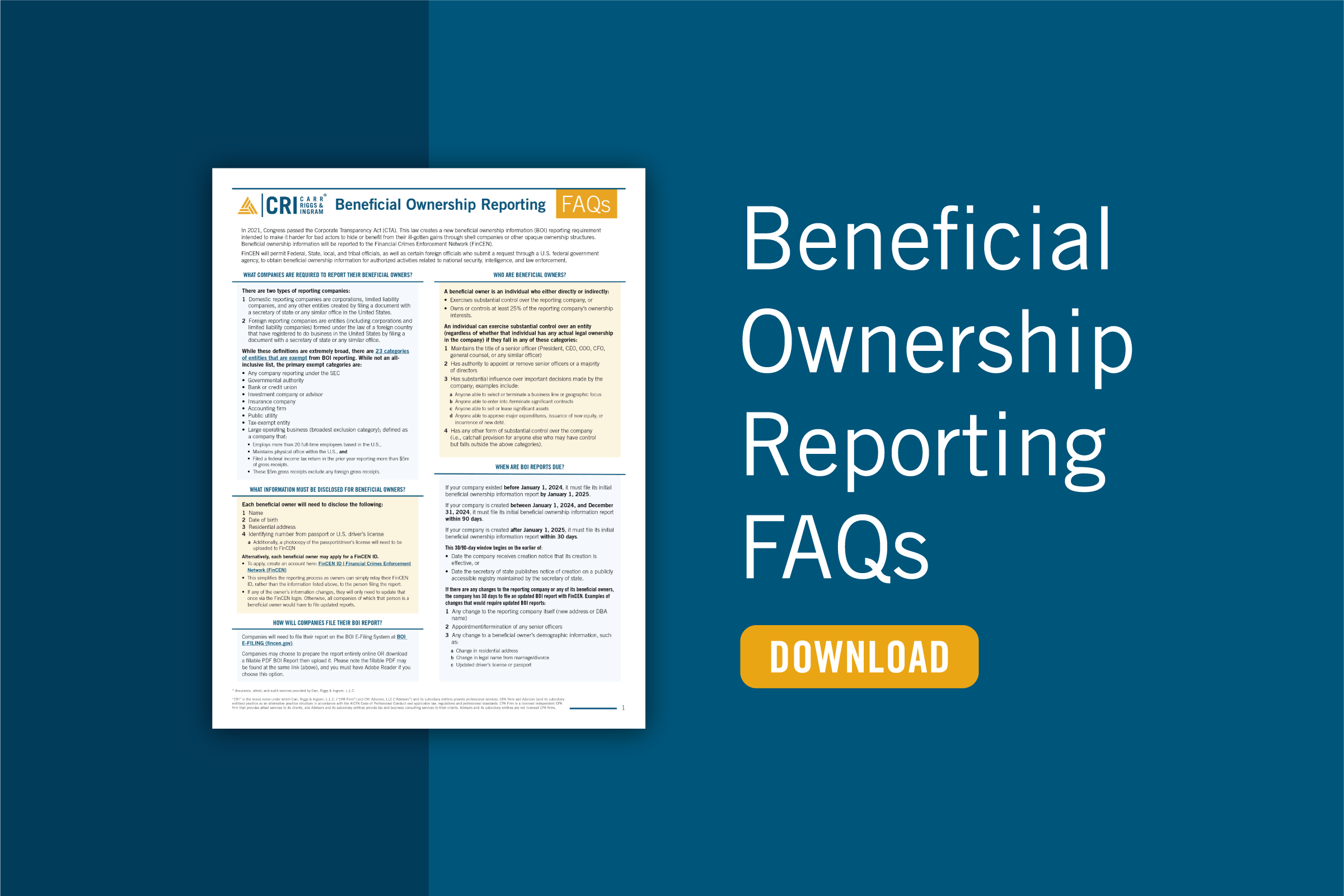Excise Tax for Non-Profit Leaders: Understanding Penalties & Compliance
- Contributors
- Byron E. Shinn
- Ray Roberts
- Rhonda G. Williams
May 31, 2024
For individuals involved with tax-exempt organizations, staying updated on the diverse tax regulations that might impact their operations is crucial. A critical area that frequently prompts inquiries and concerns is the imposition of excise taxes on individuals known as “disqualified persons” within these organizations. Fully understanding the nature of these taxes, identifying who is affected, and recognizing the potential consequences are fundamental steps in ensuring compliance and preserving your organization’s tax-exempt status.
What is an Excise Tax?
An excise tax is a tax imposed on specific goods, services, or activities. An individual consumer does not directly pay it; instead, it is typically levied on the producer or supplier of goods or services and often relates to the quantity of items produced or sold. In the context of tax-exempt organizations, excise taxes are used as a regulatory measure to ensure that the operations and transactions of these entities adhere to legal and ethical standards. Specifically, intermediate sanctions—another term for these excise taxes—apply only to 501(c)(3) and 501(c)(4) organizations, focusing on maintaining public benefit and compliance.
Who Qualifies as a Disqualified Person?
A “disqualified person” in the realm of tax-exempt entities typically includes individuals or entities that are in a position of substantial influence over the organization at any time during the look-back period, which is the five-year period before the excess benefit transaction occurred. This could include, but is not limited to, voting members of the governing body, family members of individuals in control, and entities owned by these individuals. The definition is broad and aims to cover those who might have the power to exert undue influence over the organization’s resources.
Excise Taxes and Their Impact on Disqualified Persons
Tax-exempt organizations and their disqualified persons must be particularly vigilant about “excess benefit transactions.” These occur when a disqualified person receives benefits that exceed the value they provide to the organization, whether through cash or noncash means. To discourage such imbalances and penalize discrepancies, the IRS imposes an excise tax of 25% on the excess benefit, which must be paid by the disqualified person who benefits from the transaction, not the organization. If the transaction is not corrected within the taxable period, a further excise tax of 200% of the excess benefit is imposed. This severe penalty acts as a strong deterrent to prevent such transactions from remaining unaddressed.
The Importance of Timely Correction
To avoid the severe 200% tax, the disqualified person involved must correct the excess benefit transaction promptly. Any excess benefit transaction needs to be corrected by the organization by the time it files its tax return for the year in which the excess benefit occurred, or before a notice of deficiency is issued by the IRS, whichever comes first. Should the disqualified person only partially correct the excess benefit, the 200% tax will apply exclusively to the remaining uncorrected portion.
For disqualified persons, the consequences of not adhering to IRS regulations regarding excise taxes can be severe. If you are involved with a tax-exempt organization and require assistance navigating these complex regulations or are worried about potential excise tax issues, contact your CRI advisor. Our team of experts is ready to provide you with the necessary guidance and support to ensure that you meet your compliance responsibilities and protect both your and your organization’s financial well-being.










































































































































































































































































































































































































































































